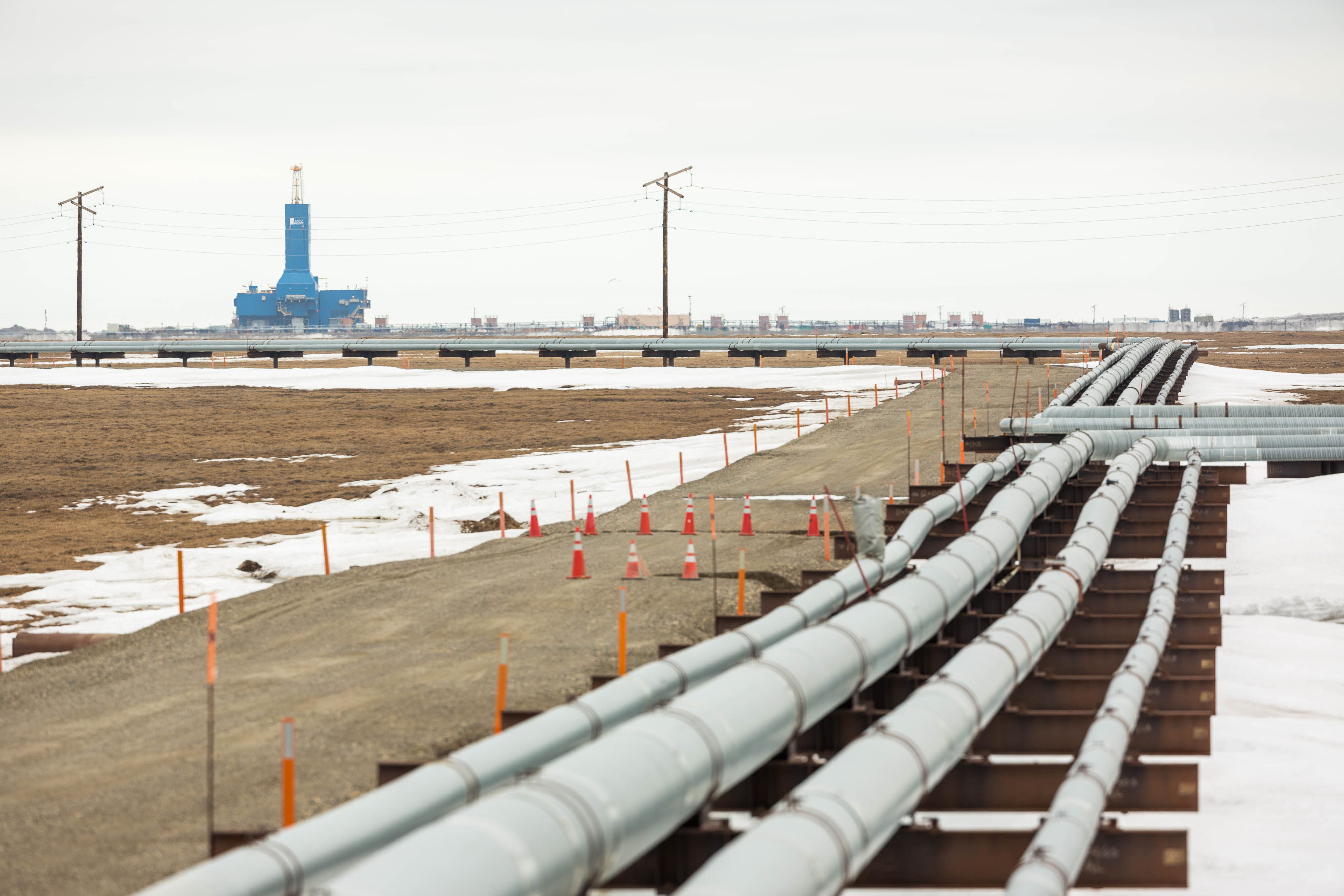US Interior secretary moves to speed Alaska’s oil and gas permit process

WASHINGTON — Interior Secretary Ryan Zinke signed an order Thursday that he said would help speed the permitting process for onshore drilling — particularly in Alaska.
Zinke’s new directive orders Interior Department staff to come up with plans to speed and streamline the permitting process and to hold more frequent lease sales for federal lands.
The announcement came as part of a series of steps taken by the Trump administration aimed at expanding oil and gas drilling in the Alaska and elsewhere in the United States.
Thursday’s order follows another signed May 31 that Zinke said would encourage energy production in the National Petroleum Reserve-Alaska (NPR-A), and potentially a 1.5 million-acre section of the Arctic National Wildlife Refuge that has so far been off-limits to drilling. (Changing that will still take an act of Congress, which remains a difficult sell in the Senate.)
There is already some commercial drilling in the NPR-A. But Zinke has argued that there could be far more.
During the Obama administration, much of the productive areas of the NPR-A were “made unavailable,” Zinke said, pledging to re-examine the area “without skirting the NEPA process.” NEPA refers to the National Environmental Policy Act, a law that dictates environmental reviews for projects that involve federal lands or funding.
Currently, permitting for oil or gas drilling on federal, Bureau of Land Management land averages 257 days. The law dictates that it should take 30 days, Zinke said.
The order Zinke signed Thursday requires Interior Department staff to come up with a plan to dramatically drop the timeline for permitting. When a company pays to enter the permit approval process, their application is valid for two years, as long as the lease has not expired. So “when permitting time is 257 days, there’s a mismatch and that creates uncertainty in the market,” Zinke said.
Zinke spoke of “horror stories” for companies that had to wait years for permits to update existing infrastructure, including one (unspecified) bridge in Alaska.
Getting permits down to a 30-day system won’t happen overnight, Zinke cautioned. The government doesn’t want “unintended consequences. I’m a firm believer in the NEPA process. That’s been the backbone, I think, of sound environmental policy,” Zinke said.
But the permitting process is disjointed, he said. In many cases, employees attack the process “sequentially,” doing one section after another. “Well, you can do it simultaneously, without jeopardizing the process itself to make sure the outcome is in the best interest of the public and meets the NEPA requirements,” he said, offering one example of potential efficiency that could be added to the process.
If he can’t reach the 30-day time limit, Zinke said he might ask Congress to consider extending the statutory requirements for the permit review period.
Several times, the interior secretary lauded the career staff at the Interior Department as “smart” and more than capable of fulfilling the task.
At the very least, Zinke said he hoped Thursday’s move would provide a “signal” to the oil and gas industry that “we’re going to be a fair and prudent partner” and not “an adversary to creating wealth and opportunity on some of our public lands.” Zinke noted, however that there are no plans to allow drilling in national parks.
Though Thursday’s order is limited to onshore oil drilling, Zinke took the opportunity to tout a recent offshore lease sale in the federal waters of Cook Inlet — the first since 2008.
One environmental group opposed to drilling in ANWR said that Zinke’s effort won’t do much for drilling. “Secretary Zinke’s order offers a solution in search of a problem,” said Nada Culver, senior director of agency policy and planning for The Wilderness Society. “The oil and gas industry has been sitting on thousands of approved permits on their millions of acres of leased land for years now. The real problem here is this administration’s obsession with selling out more of our public lands to the oil and gas industry at the expense of the American people.”
The Interior Department said there are 2,802 pending applications for permits to drill. Most are not in Alaska. According to the department, five Bureau of Land Management offices are responsible for 74 percent of those pending applications — in Wyoming, Utah, North Dakota, and two offices in New Mexico.
Zinke has said new revenue from oil drilling would go a long way to shore up the multibillion-dollar backlog that National Park Service faces to update national parks. The Trump administration’s budget request to Congress would cut the Interior Department’s budget by 12 percent, but Zinke noted there would be a $16 million increase to support permit processing.
Alaska Sen. Lisa Murkowski manages the appropriations process of the Interior Department in the Senate.